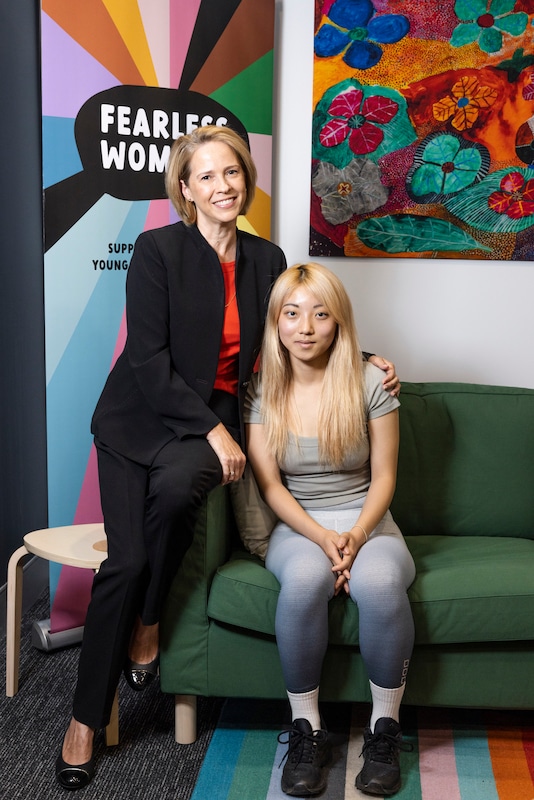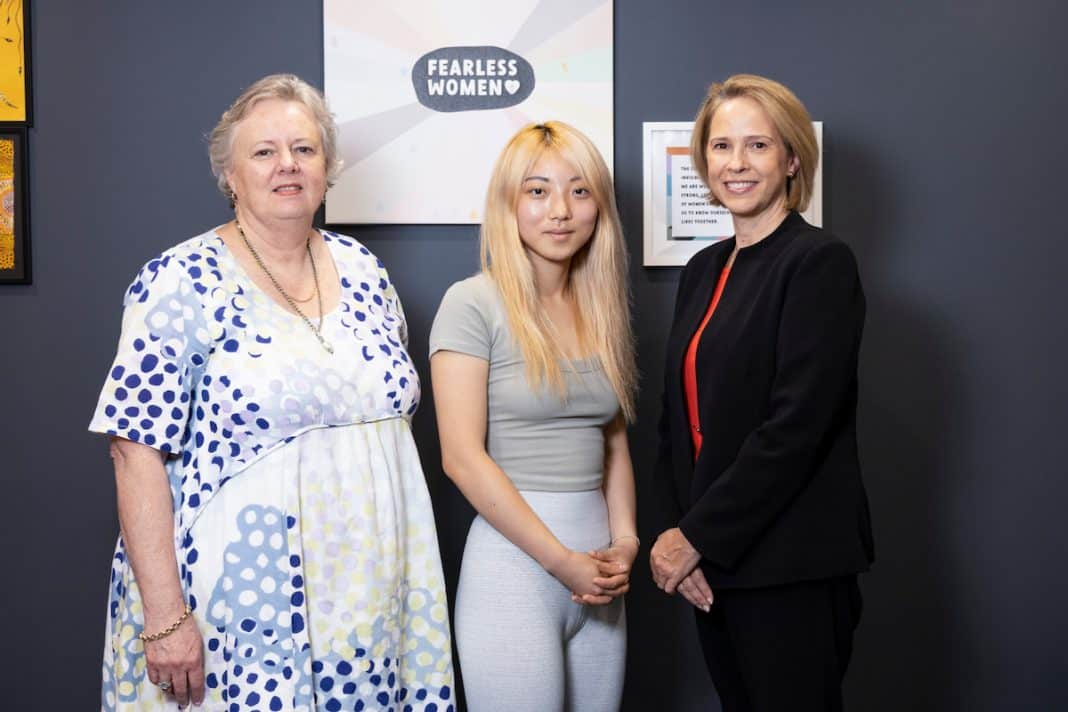One in three girls aged between 15 and 19 meet the criteria for serious mental illness, according to Canberra Mobile Counselling. Young females are twice as likely to report high psychological distress than their male counterparts in the region.
The phenomenon of boys and men underreporting mental and emotional distress has led to the growth of grassroots programs like Menslink and Men’s Table. And yet, for years there has been an absence of equivalent programs for young women, says CEO of Fearless Women, Glenda Stevens.
“Girls internalise. Women, whilst they talk about certain things, they don’t talk about everything.”
Commencing in 2022, Ms Stevens has been at the masthead of a free mentorship program based closely on the Menslink model, but this time, it’s for young women and girls aged 10 to 25.
CW caught up with Fearless Women mentor, Julianne, and her mentee, 23-year-old Roxanne, shortly after the pair was matched for the third cycle of the mentorship program.
Julianne, an executive coach and performance consultant, wanted to volunteer her time as a mentor to girls in the same age group as her teenage sons.
“Although there are psychologists, GPs, parents, and friends, I just felt that it’s important to have somebody that’s once removed from all of that,” she says.
“I see it so often, girls who aren’t coping and they just don’t have the right person to ask a question to.”
She found Fearless Women online, after searching for a female counterpart to Menslink. “When I saw that Martin Fisk was on the board, I thought it was too good to be true.”
Mr Fisk, who was CEO of Menslink for over 10 years, helped build Fearless Women as a founding director.
Roxanne is a full-time student. Aside from one relative in Canberra, most of her family lives overseas.
“I found out about the program last December,” she says. “At the time, I was in my final exam period, feeling lots of stress. In my family, I’m the first one to go to uni.
“When it comes to how I should manage my uni life with my private life, I don’t have someone to ask for guidance.”

For two years, Julianne and Roxanne will meet twice a month, as part of a group activity with the other mentors and mentees, and then one-on-one, whether it be for coffee, op-shopping, or bushwalking.
While the pair are still planning their first duo meetup, they have already stepped out of their comfort zone together to conquer the first group activity: Street funk.
“We did our street funk dance class last Saturday, which was lots of fun and quite embarrassing for me particularly,” smiles Julianne.
“It’s a huge step, no matter how old you are, to go into a room full of women and put yourself out there.”
“It’s quite challenging for me because I have lots of anxiety when interacting with people, especially strangers,” says Roxanne.
“Before I entered the room, I had so many thoughts of ‘what if people judge me.’ But as I started to dance with other girls, I began to feel a lot more comfortable.
“I want more social skills, and I know Julianne is an expert in this area … Also, I’m not quite sure what’s going to happen in the future.”
Ms Stevens offers insight as to why the program provides mentorship for children in Year 5, all the way up to women aged 25. “You’re not a full adult until you’re about 25,” she says.
“For some reason, we expect our young people, and they expect themselves, to have all the answers as teenagers and young adults.
“They don’t have to know the answers. Our goal is for them to be reassured that it’s okay not to know. It’s okay to be exploring, and on a journey. Because when you’re older, you will know.”
“I think if I could get one thing out of this program, it’s some company,” says Roxanne. “Knowing that I have someone in my life, that can come along with me when I go through difficulties.”
“It’s not for the mentor to give the mentees the answers,” Julianne adds. “It’s to help them think through their options, what they really want and what’s best for them.”
“Part of the research we did for the program was asking young women what they want,” says Ms Stevens.
“They said they wanted to be confident. They wanted to have a voice. They wanted to know that their feelings were valued. And they wanted those things for the rest of their life, which comes down to resilience.”
Before commencing this cycle, Fearless Women conducted an evaluation on the previous two cycles, that continue to run after commencing in July and October of last year.
“We found that the young women were starting to show changes in their personal behaviours, things like improved self-kindness, which was noticed by their parents and carers,” says Ms Stevens.
“Their levels of engagement and positivity had improved. Some of them were going to school a little bit more often; all those nuanced improvements which we would hope for in the first six months of a program.”
So far, mentors have included paramedics, lawyers, teachers, nurses, stay-at-home mums, counsellors, and psychologists.
“Age is not a factor,” says Ms Stevens. “Education is not a factor. It’s about having the heart.
“What we found within the research is that the mentors themselves are finding their own mental health has improved, they feel more connected to the community, and are feeling more positive about life.”
Fearless Women is currently accepting applications for the mentorship program. Find out more at fearlesswomen.org.au
Canberra Daily would love to hear from you about a story idea in the Canberra and surrounding region. Click here to submit a news tip.



